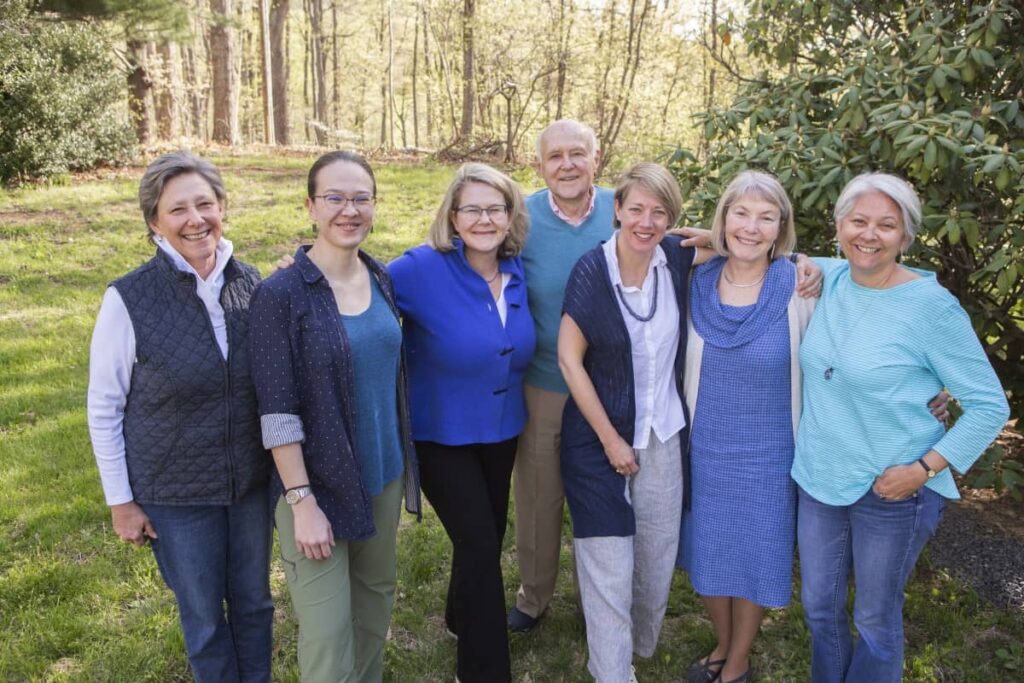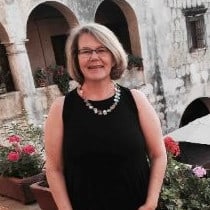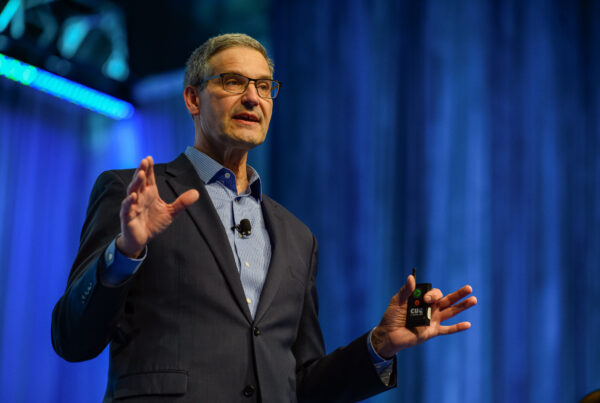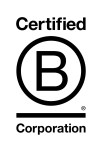You could say that philanthropy runs in Tory Dietel Hopps’ family. She’s a fourth-generation inheritor, philanthropist and activist, and she spent the first 25 years of her professional career in the nonprofit sector, focusing on resource development, management and governance for nonprofit organizations in education, health and human services.

Dietel & Partners Team, Tory pictured 3rd from the left.
In 2007, Tory joined her father, Bill Dietel and oldest sister, Betsy Dietel to create Dietel & Partners. Today, the firm provides counsel to more than a half dozen clients whose assets range from $40 million to over half a billion dollars, and Dietel & Partners works closely with over 200 grantee organizations.
CNote sat down with Tory to talk about her career, the nonprofit sector, and donor-advised funds, and we got the chance to hear her thoughts on mission-driven giving, blended investment strategies, and the future of philanthropy.
CNote: How did Dietel & Partners come about?
Tory Dietel Hopps: Dietel & Partners was formed when we were asked by a multigenerational family to build a shared-family philanthropic office. It was an unusual arrangement; it was my family working with another family. Since then, we have specialized in working with multi-generational families and individual donors who have used donor-advised funds and/or foundations. And some have simply done their philanthropy out of their checkbooks. We are vehicle agnostic. The preponderance of our clients have operated without experienced philanthropic council prior to engaging our services.
CNote: What’s something special about your firm?
Tory Dietel Hopps: Our firm is an expression of our values as a family in terms of our commitment to social justice, a deep interest in women’s equality, and a keen dedication to the future health of the planet.
Because the three original partners and everyone that we’ve hired since have all had extensive experience in 501(C)3 organizations, we have a dedicated interest in reforming the power dynamics that exist in our sector regarding grantmaking, as well as social finance more broadly. Operating in a sincere partnership model is in our DNA and is something that requires daily commitment; we take it very seriously.
CNote: How has the industry evolved since you first began your career?
Tory Dietel Hopps: One thing I would cite is the increasing number of people we see who are considering spending down their wealth in their lifetime or within the next generation’s lifetime. That’s been a major trend. It may be special to our practice, but almost every single person we work with has a spend-down mentality. This is a remarkable trend and it does create a sense of urgency.
I would also underline the importance of the increase in use of donor-advised funds. In addition, there is growing interest in the use of an integrated capital or blended capital model and we have seen more client interest in mission-aligned investing.
CNote: You mentioned some “power dynamics” earlier. What isn’t functioning as well as it could in this sector?
Tory Dietel Hopps: When I refer to power dynamics, I am referring to the often unconscious behavior of funders putting their interests and needs first and not recognizing the stress and strain that many of their grantee partners function under on a regular basis. A lot of it is not necessarily something that people mean to perpetuate, but it can easily create difficulties in terms of us all getting farther along the roads we’re trying to move down, regardless of the issue. Challenging those behaviors and bringing a service headset to our relationships is something that’s near and dear to our hearts.
CNote: What have you learned about working with grantees?
Tory Dietel Hopps: We think about grantees truly as partners on the ground and not simply as recipients of philanthropic funding. One of the first things that we ask our grantee partners about is the state of their cash flow. I think too many of us in philanthropy forget that frontline organizations are often walking a very tight financial rope. Studying the cash flow position of an organization tells us a lot about bandwidth and flexibility. It’s an often overlooked early question.
Second, we try to look at all the ways in which we can remove hoops that grantee partners all too often get asked to jump through one more time. So, before we ask an organization to make an application, we are as sure as possible their proposal is likely to be approved by our client partner. Organizations spend an unnecessary amount of time filling out applications, answering questions, dealing with site visits etc. When we enter the process, we wish to be as forthright as possible about the prospects of support and try to streamline our process.
When we take on a philanthropic client, essentially, we say to the client, “We see both you and your grantees as our partners in this work.” We believe this partnership model is extremely effective.
CNote: What are the issues you’re most passionate about, and what are some solutions you’ve invested in that address those issues?
Tory Dietel:
We are firm believers in the power of human talent. Leadership training, particularly for women is something our family has long supported. As a firm, we have provided funding for women’s leadership programs run by the Omega Women’s Leadership Center (OWLC) in Rhinebeck, New York. Omega works with a very diverse group of female leaders in government, nonprofit, and business. The OWLC’s tag line is “Do Power Differently” and we really support that.
Climate change is also important to us as a family and as a firm. As all too many of our policy makers are currently unwilling to take on leadership, we have been exploring ways to create change that is not dependent on our federal or state governments. For example, we’ve been looking at using market forces for change, and I have been personally deeply engaged with something called Health Care Without Harm, which is a global entity that is helping to lead the healthcare industry towards sustainability in their operations and address climate change as anchor institutions.
CNote: You mentioned donor-advised funds earlier. What’s your take on them?
Tory Dietel Hopps: Donor-advised funds (DAFs) are by far the fastest growing vehicle within the philanthropic landscape. DAFs can democratize giving. It’s a simpler solution and it’s financially much cheaper than starting a foundation. In my opinion, we do need some regulation around the donor-advised funds for greater transparency. That being said, they can be a powerful tool for people that are interested in philanthropic giving. It’s not an either/or situation and foundations and DAFs have different capabilities and benefits.
CNote: Is it more challenging to do grant making through the traditional foundation approach versus a donor-advised fund, or are the challenges relatively the same?
Tory Dietel Hopps: It can be important to have both arrows in your philanthropic quiver. The donor-advised fund approach now appears to be more open to impact investing. One of the ways that I got introduced to CNote was through a brand-new entity called CapShift that’s providing impact investing capability through donor-advised funds. So, I think that with the right investment advisor and strategy, you can use a donor-advised fund very creatively, just as you can with a foundation. Typically, the donor-advised funds are in essence democratic and funds can be started with as little as $1,000. Sometimes, the options on the investment side are not as robust with the smaller accounts, but it appears to us to be changing and I think that’s really good news for the sector as a whole.
CNote: To what extent do you see an integrated capital approach to grant making becoming more popular, and what components within that blended approach do you think have the most promise?
Tory Dietel Hopps: It’s a burgeoning area. We ought to be thinking about how we move everything towards mission and towards the reason why we have a charitable tax status. When I think about integrated capital, I think of a continuum, a horizontal line and at the far left I would put grant dollars and at the very far right I’d place equity. In between are a wide variety of different ways to utilize one’s capital to be helpful in achieving mission. There is a lot of room for creativity.
Historically, the investment and grantmaking sides of most foundations and DAFs have been disconnected. The fundamental shift that needs to happen is to bring the investments more in line with mission. The options and opportunities are growing by the day.
My observation is that the once the intention is translated into adopting an integrated capital approach, the philanthropic process becomes much more effective because you’ve got additional tools and capital driving towards mission.
CNote: What advice would you have for someone who’s starting a foundation, launching a donor-advised fund, or inheriting wealth?
Tory Dietel: The very first thing that people should do is know what they own. So just being conscious of what’s actually in your holdings is the very first step. Okay, “I have an index fund.” Well, that’s great, but what’s actually in your index fund? I just went through this recently with a client who has been doing remarkable and very cutting-edge grant making in the environmental field. On the investment side of the house, they had funds that were in index funds, and those index funds were holding companies in industries that the grant-making side of the house was working to shift and fight against, from a watchdog standpoint and from a policy standpoint. That doesn’t make a lot of sense. So, step one is really understanding what you own by way of investments before you start grantmaking. Your money is working all the time, and you need to ask is your money working for what you want it to be doing in the world both in terms of investments and grants?
CNote: What’s the future of philanthropy look like in the next five to 10 years, and what are you most excited about?
Tory Dietel: As philanthropy grows and younger people in particular become more engaged, donors are becoming more creative and experimental. We are moving away from foundations giving just 5% of their assets away in grants to foundations activating the other 95 percent for mission as well. DAF holders are also beginning to work towards aligning of all assets towards mission. I find this shift to be very encouraging.
I’m not sure there’s a silver bullet or the perfect vehicle that’s right for everybody, but the fact that there’s experimentation going on is a good thing. I think that the younger generations are more global in their exposure, their education and their interests. Technology helps us to connect in ways we never have before, which is exciting for the future of the field.
It is important that there is more focus on trying to hold the philanthropic community accountable in different ways. That is a positive trend if it continues with a desire to truly make things better and not simply to shame. That’s part of why I think some the regulation component is needed in the donor advised fund space and what could be really helpful – transparency is important, particularly within the donor-advised field.
Finally, I am fascinated by the current interest in building communities of practice. There are many associations, councils and networks of funder groups developing across all fields. For example, the number of members in the Sustainable Agriculture and Food Systems Funders has at least tripled in the last 10 to 15 years. That’s an exciting indication of the rise of these collective funding and learning entities. I see it as a positive sign that people do not want to work in silos but are eager to do things collectively and collaboratively to build more effective strategies. This has many positive implications for the future of philanthropy.
 Special thanks to Tory Dietel Hopps for sharing her story and vision for philanthropy and impact investing.
Special thanks to Tory Dietel Hopps for sharing her story and vision for philanthropy and impact investing.
About Dietel & Partners
The Dietel & Partners business grew out of the Dietel family’s collective experience in the giving and receiving sides of philanthropy. Our founder worked as president of the Rockefeller Brothers Fund for two generations. Today, three partners and a full-time team provide counsel to several clients and families. Together, they have almost 80 years of experience nurturing long-time relationships with some of America’s most influential families who have trusted their approach to philanthropy. Dietel & Partners was certified as a Women Owned-Business in 2019. www.DietelAndPartners.com








